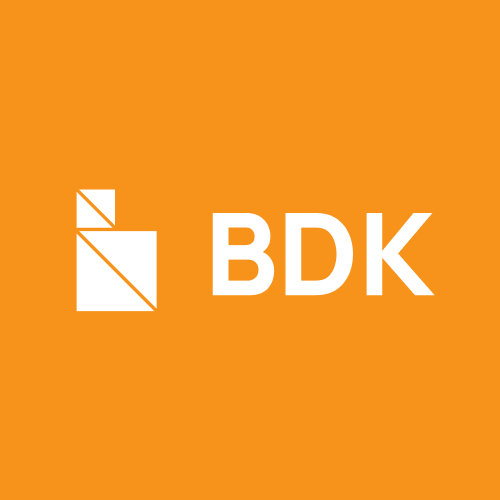cf8cd2f2b4a975afbea18309a5dae0158acd8805 Update rust-miniscript to version 9.0, hwi to version 0.5 (Steve Myers) Pull request description: ### Description A new [`rust-miniscript` release 9.0](https://github.com/rust-bitcoin/rust-miniscript/blob/master/CHANGELOG.md#900---november-5-2022) came out on Nov 14, updating to it to pickup the bug fixes. Also updating dependency`hwi` to new `0.5` version which used the `9.0` version of `rust-miniscript`. ### Notes to the reviewers This new version of `rust-miniscript` uses the same version of `rust-bitcoin` we are on, 0.29.1. ### Changelog notice Update rust-miniscript dependency to latest bug fix release 9.0. ### Checklists #### All Submissions: * [x] I've signed all my commits * [x] I followed the [contribution guidelines](https://github.com/bitcoindevkit/bdk/blob/master/CONTRIBUTING.md) * [x] I ran `cargo fmt` and `cargo clippy` before committing ACKs for top commit: rajarshimaitra: ACK cf8cd2f2b4a975afbea18309a5dae0158acd8805 Tree-SHA512: 12473f67d2a4388e3d93b91988233e067328c344bb993981b014e1f7469db82f12d8f68eb1bf093feb25c4428d10451d8f361497c71c4f696d19939d4be9d858
BDK

A modern, lightweight, descriptor-based wallet library written in Rust!
Project Homepage | Documentation
About
The bdk library aims to be the core building block for Bitcoin wallets of any kind.
- It uses Miniscript to support descriptors with generalized conditions. This exact same library can be used to build single-sig wallets, multisigs, timelocked contracts and more.
- It supports multiple blockchain backends and databases, allowing developers to choose exactly what's right for their projects.
- It's built to be cross-platform: the core logic works on desktop, mobile, and even WebAssembly.
- It's very easy to extend: developers can implement customized logic for blockchain backends, databases, signers, coin selection, and more, without having to fork and modify this library.
Examples
Sync the balance of a descriptor
use bdk::Wallet;
use bdk::database::MemoryDatabase;
use bdk::blockchain::ElectrumBlockchain;
use bdk::SyncOptions;
use bdk::electrum_client::Client;
use bdk::bitcoin::Network;
fn main() -> Result<(), bdk::Error> {
let blockchain = ElectrumBlockchain::from(Client::new("ssl://electrum.blockstream.info:60002")?);
let wallet = Wallet::new(
"wpkh([c258d2e4/84h/1h/0h]tpubDDYkZojQFQjht8Tm4jsS3iuEmKjTiEGjG6KnuFNKKJb5A6ZUCUZKdvLdSDWofKi4ToRCwb9poe1XdqfUnP4jaJjCB2Zwv11ZLgSbnZSNecE/0/*)",
Some("wpkh([c258d2e4/84h/1h/0h]tpubDDYkZojQFQjht8Tm4jsS3iuEmKjTiEGjG6KnuFNKKJb5A6ZUCUZKdvLdSDWofKi4ToRCwb9poe1XdqfUnP4jaJjCB2Zwv11ZLgSbnZSNecE/1/*)"),
Network::Testnet,
MemoryDatabase::default(),
)?;
wallet.sync(&blockchain, SyncOptions::default())?;
println!("Descriptor balance: {} SAT", wallet.get_balance()?);
Ok(())
}
Generate a few addresses
use bdk::{Wallet, database::MemoryDatabase};
use bdk::wallet::AddressIndex::New;
use bdk::bitcoin::Network;
fn main() -> Result<(), bdk::Error> {
let wallet = Wallet::new(
"wpkh([c258d2e4/84h/1h/0h]tpubDDYkZojQFQjht8Tm4jsS3iuEmKjTiEGjG6KnuFNKKJb5A6ZUCUZKdvLdSDWofKi4ToRCwb9poe1XdqfUnP4jaJjCB2Zwv11ZLgSbnZSNecE/0/*)",
Some("wpkh([c258d2e4/84h/1h/0h]tpubDDYkZojQFQjht8Tm4jsS3iuEmKjTiEGjG6KnuFNKKJb5A6ZUCUZKdvLdSDWofKi4ToRCwb9poe1XdqfUnP4jaJjCB2Zwv11ZLgSbnZSNecE/1/*)"),
Network::Testnet,
MemoryDatabase::default(),
)?;
println!("Address #0: {}", wallet.get_address(New)?);
println!("Address #1: {}", wallet.get_address(New)?);
println!("Address #2: {}", wallet.get_address(New)?);
Ok(())
}
Create a transaction
use bdk::{FeeRate, Wallet, SyncOptions};
use bdk::database::MemoryDatabase;
use bdk::blockchain::ElectrumBlockchain;
use bdk::electrum_client::Client;
use bdk::wallet::AddressIndex::New;
use base64;
use bdk::bitcoin::consensus::serialize;
use bdk::bitcoin::Network;
fn main() -> Result<(), bdk::Error> {
let blockchain = ElectrumBlockchain::from(Client::new("ssl://electrum.blockstream.info:60002")?);
let wallet = Wallet::new(
"wpkh([c258d2e4/84h/1h/0h]tpubDDYkZojQFQjht8Tm4jsS3iuEmKjTiEGjG6KnuFNKKJb5A6ZUCUZKdvLdSDWofKi4ToRCwb9poe1XdqfUnP4jaJjCB2Zwv11ZLgSbnZSNecE/0/*)",
Some("wpkh([c258d2e4/84h/1h/0h]tpubDDYkZojQFQjht8Tm4jsS3iuEmKjTiEGjG6KnuFNKKJb5A6ZUCUZKdvLdSDWofKi4ToRCwb9poe1XdqfUnP4jaJjCB2Zwv11ZLgSbnZSNecE/1/*)"),
Network::Testnet,
MemoryDatabase::default(),
)?;
wallet.sync(&blockchain, SyncOptions::default())?;
let send_to = wallet.get_address(New)?;
let (psbt, details) = {
let mut builder = wallet.build_tx();
builder
.add_recipient(send_to.script_pubkey(), 50_000)
.enable_rbf()
.do_not_spend_change()
.fee_rate(FeeRate::from_sat_per_vb(5.0));
builder.finish()?
};
println!("Transaction details: {:#?}", details);
println!("Unsigned PSBT: {}", base64::encode(&serialize(&psbt)));
Ok(())
}
Sign a transaction
use bdk::{Wallet, SignOptions, database::MemoryDatabase};
use base64;
use bdk::bitcoin::consensus::deserialize;
use bdk::bitcoin::Network;
fn main() -> Result<(), bdk::Error> {
let wallet = Wallet::new(
"wpkh([c258d2e4/84h/1h/0h]tprv8griRPhA7342zfRyB6CqeKF8CJDXYu5pgnj1cjL1u2ngKcJha5jjTRimG82ABzJQ4MQe71CV54xfn25BbhCNfEGGJZnxvCDQCd6JkbvxW6h/0/*)",
Some("wpkh([c258d2e4/84h/1h/0h]tprv8griRPhA7342zfRyB6CqeKF8CJDXYu5pgnj1cjL1u2ngKcJha5jjTRimG82ABzJQ4MQe71CV54xfn25BbhCNfEGGJZnxvCDQCd6JkbvxW6h/1/*)"),
Network::Testnet,
MemoryDatabase::default(),
)?;
let psbt = "...";
let mut psbt = deserialize(&base64::decode(psbt).unwrap())?;
let _finalized = wallet.sign(&mut psbt, SignOptions::default())?;
Ok(())
}
Testing
Unit testing
cargo test
Integration testing
Integration testing require testing features, for example:
cargo test --features test-electrum
The other options are test-esplora, test-rpc or test-rpc-legacy which runs against an older version of Bitcoin Core.
Note that electrs and bitcoind binaries are automatically downloaded (on mac and linux), to specify you already have installed binaries you must use --no-default-features and provide BITCOIND_EXE and ELECTRS_EXE as environment variables.
Running under WASM
If you want to run this library under WASM you will probably have to add the following lines to you Cargo.toml:
[dependencies]
getrandom = { version = "0.2", features = ["js"] }
This enables the rand crate to work in environments where JavaScript is available. See this link to learn more.
License
Licensed under either of
- Apache License, Version 2.0 (LICENSE-APACHE or http://www.apache.org/licenses/LICENSE-2.0)
- MIT license (LICENSE-MIT or http://opensource.org/licenses/MIT)
at your option.
Contribution
Unless you explicitly state otherwise, any contribution intentionally submitted for inclusion in the work by you, as defined in the Apache-2.0 license, shall be dual licensed as above, without any additional terms or conditions.




